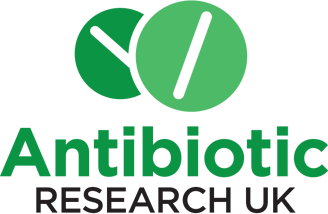The average reading age of adults in the UK is estimated at between 9 and 11 years and nearly 8% of people in the UK do not speak English as their first language. Could we save lives by toning down the medical jargon and explaining things in language everyone understands?
Coronavirus, shielding, immunity, vaccination – the medical terms we use are many and varied. Each word has a very specific meaning that helps medical professionals tell each other exactly what they need to know in as few words as possible. In today’s digital age, it can be tempting to use these same pieces of medical jargon to keep your word count down in the hope that readers will make it to the end of your webpage.
As health communicators, part of our role is to help people understand the risks out there and how to avoid them. When your loved one is struck down with an illness, we know that the medical jargon and complicated words used in ‘helpful’ resources can be off-putting at best, and downright scary or completely inaccessible at worst.
The words on everyone’s lips: COVID-19
Our lives depend upon knowing what the threat is and how to avoid it. In the case of COVID-19, we have learned quickly. Nearly 1 million people have lost their lives to this disease in just a few months. But antibiotic resistance is projected to take 10 times as many people every year by 2050, and public understanding of how it works is still very poor. This is not the fault of the person on the street, but of the government and official organisations that are put in place to keep us safe.
Antibiotic resistance is a pressing issue, as many of the actions that will help us overcome this grave threat to human life are those needed to be taken by the average person. GPs, hospital healthcare workers, pharmaceutical companies and agricultural businesses have a role to play. But, the quick wins that could take us off this collision course are things like finishing your course of antibiotics, washing your hands frequently and not taking antibiotics for things like viruses against which they do not work. Read how you as an individual can help to ‘change the course’ of antibiotic resistance.
“At the start of the global pandemic, we had never heard of COronaVIrus Disease ‘COVID-19’, but now it’s a word that most people on the planet will have uttered at some point in their lives. Now, we need to make sure that the same thing happens for ‘antibiotic-resistant infection’, so that we can start to turn the tide on this grossly misunderstood threat to global health.”
Colin Garner
Chief Executive, Antibiotic Research UK.
What to say about antibiotic-resistant infections?
If you need to talk about antibiotic resistance, here are some of the easiest phrases you can use. These will help people to understand the topic more easily. We’ve also included some things to avoid if you want to keep things focussed and clear. We’ll work together to strip away medical jargon!
Say:
- Bugs, germs or bacteria instead microbes
- Antibiotics instead of antimicrobials, antimicrobial agents, disinfectants or sanitiser
- Antibiotic resistance instead of microbial resistance
- Antibiotic-resistant infection instead of antibiotic-resistant bacteria or antimicrobial-resistant infection
Don’t say:
- A person is resistant, as it is the bacteria that become resistant.
- Microbial infections as this can include fungi and viruses, which are not affected by antibiotics.
- Microbial or antimicrobial resistance as these two terms are confusing; try to talk about the bacteria that cause the infection being resistant to antibiotics instead.
- Superbugs, as research has shown some people misunderstand this and believe they are good bugs!
Here’s one way to explain it, remembering that the average reading age for adults in the UK is 9-11 years:
Bacteria are tiny ‘bugs’ that exist in huge numbers all around us, even on and inside our bodies. Many of these bugs are helpful, such as those in our stomach that help us break down our food. Lots of them are not helpful, but don’t harm us either. But some are dangerous and cause infections (sickness) by getting into parts of the body where they don’t belong, by growing too quickly and/or by damaging the cells that make up our body.
Our immune system can sometimes fight off these bacteria. If it can’t then we might use medicines (called antibiotics) to help. If not treated with the right medicine, some people die from infections caused by bacteria. Sometimes, bacteria are able to avoid the effect of antibiotics because they have developed antibiotic resistance. When this happens, the infection is harder to treat – we call this an antibiotic-resistant infection. Often, we can use a different antibiotic, but some bacteria are now resistant to the effect of all of the antibiotics that have been made.

